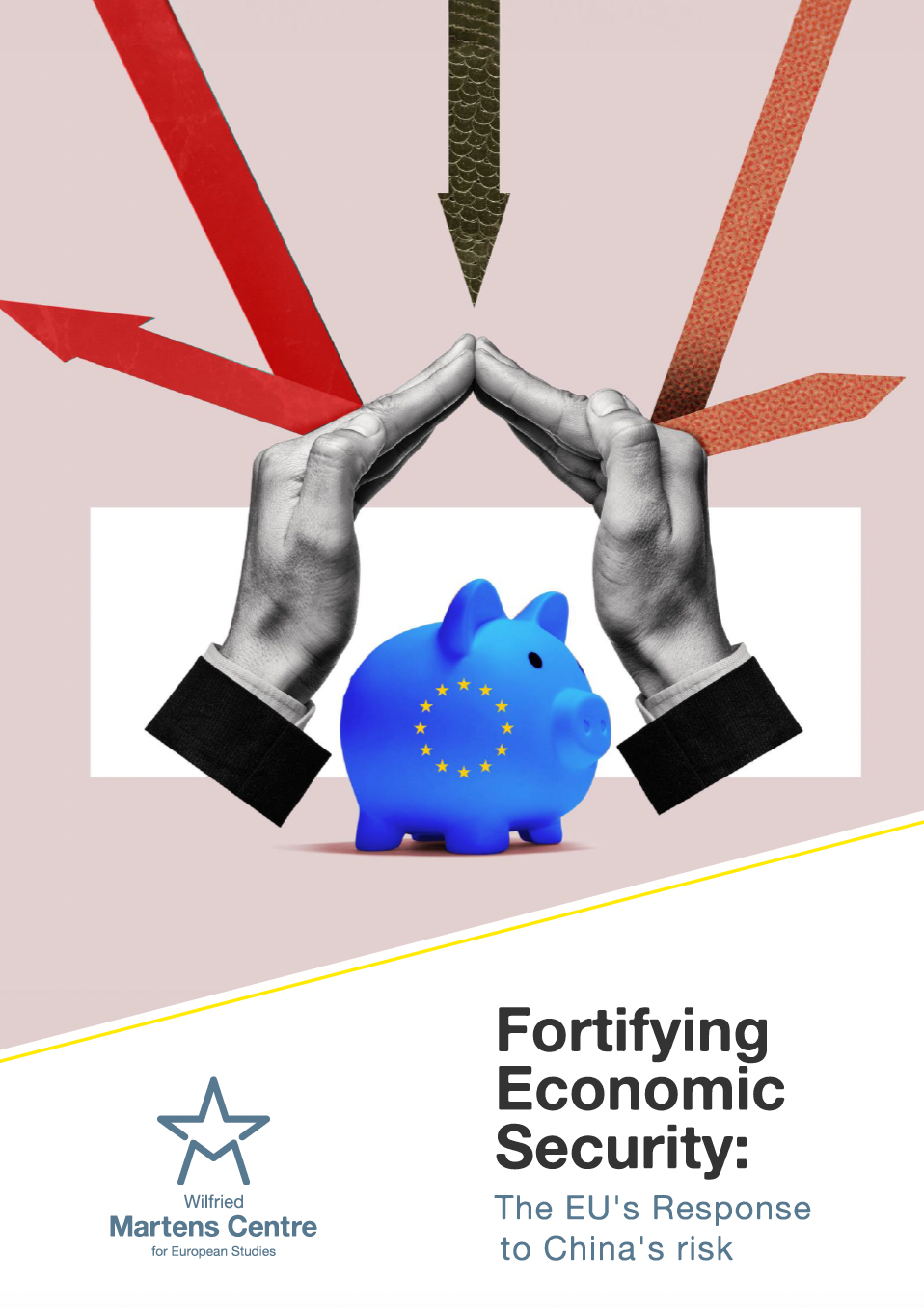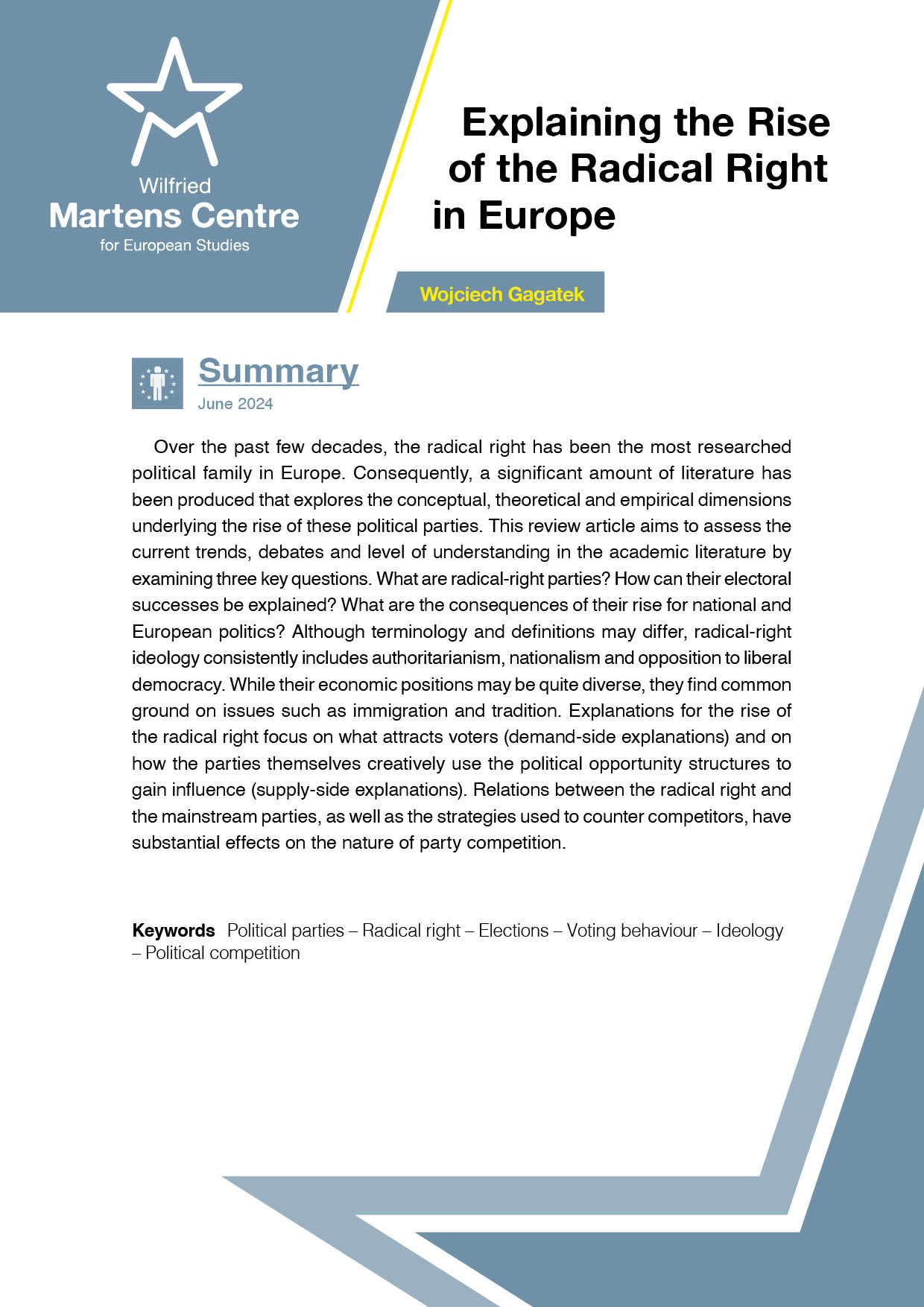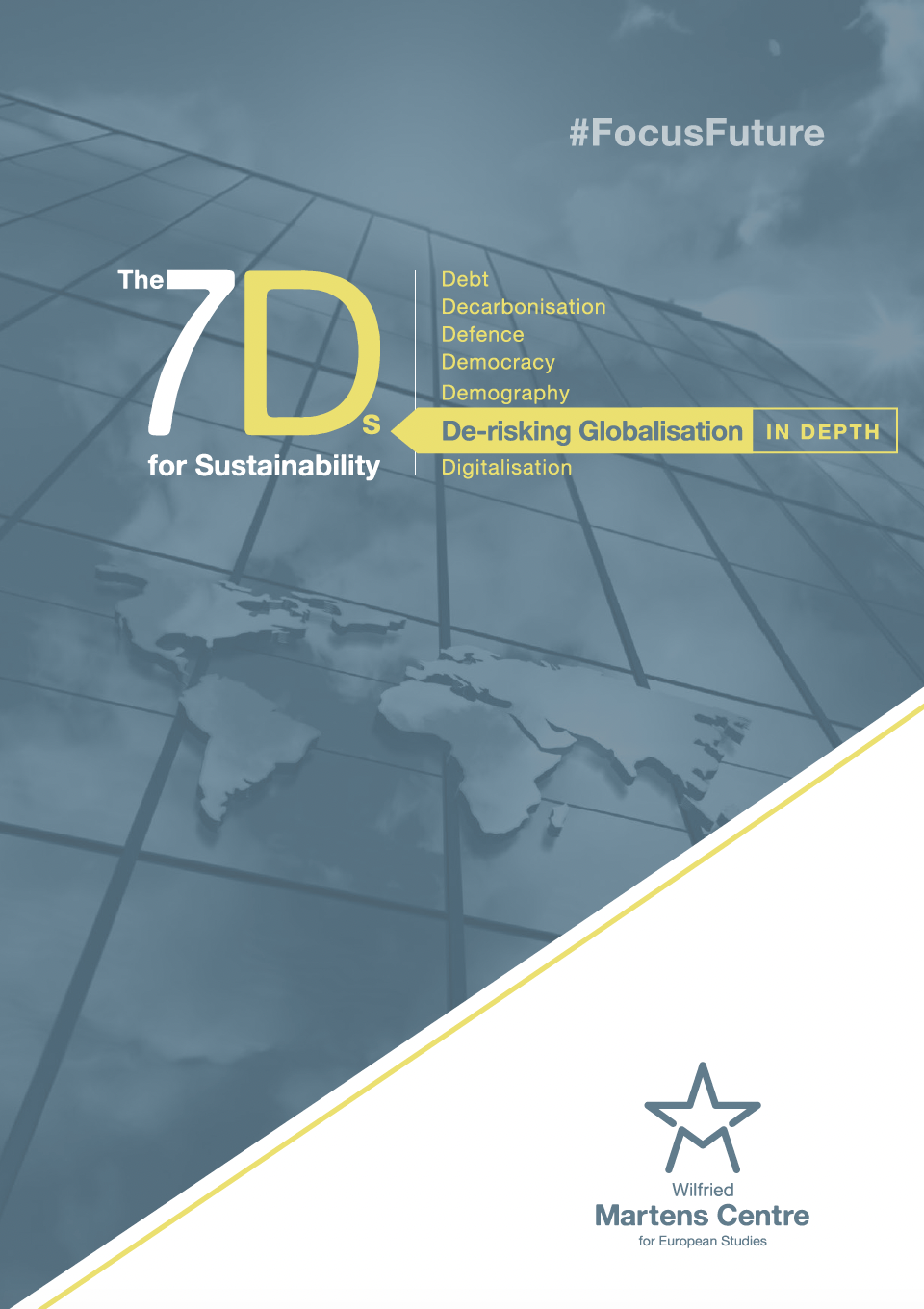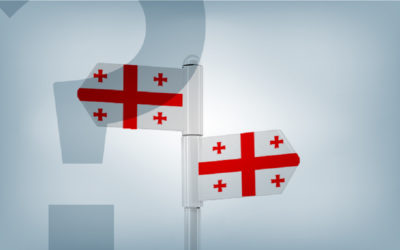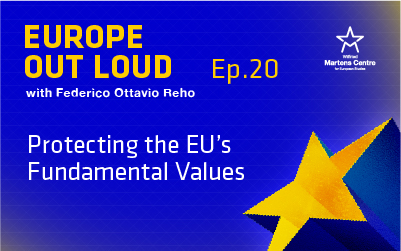Is open/closed the new left/right? Paradigm shift and Europe’s centre right
13 September 2016
The idea that the left/right paradigm in politics is outdated has been around for so long that it’s amazing how often we still think in left right terms. Maybe old habits die hard. Or maybe there has always been more to the old paradigm that what the commentariat made us believe.
But according to a growing chorus of pundits in 2016, now is the time to seriously let go. The paradigm du jour is open vs. closed, global vs. territorial or, as the Economist puts it, drawbridge-downers (read Merkel, Macron and Soros) vs. drawbridge-uppers (such as Trump, Putin, Le Pen, Orbán and the UK Leave campaign). I admit that this thesis has a lot going for itself: after all, the rise of identity politics (us vs. them) and the return of nationalism are among the driving forces in the success of populists.
That would indeed speak for an entirely new paradigm. But wait: there is also a crisis-driven resentment against the market economy and international trade (traditionally, a leftist idea). Moreover, the echo chamber effect of social media reinforces any kind of polarisation, no matter whether the paradigms are old or new.
Hence, from the perspective of Europe’s biggest political family, the European People’s Party, there are three things wrong with making ‘open vs. closed’ the decisive paradigm of our days.
First of all, open/closed corroborates the populist narrative of an establishment that, no matter whether it calls itself liberal, socialist, green, Christian democratic or conservative, is united in despising the ‘little people’ and that will always act in the interests of a global elite. Now, it is simply not in the interest of big tent, catch-all political families to let this narrative become dominant: if we permit the populists to act as the party of the people vs. the elites, we risk losing.
Secondly, quite frankly, big political families such as the EPP (but also the Socialists) in their current composition neatly straddle the divide between drawbridge-uppers and drawbridge-downers. Both Angela Merkel and Horst Seehofer, her fierce critic in refugee matters (and the only one among the parties represented in the Bundestag) belong to the EPP family.
Their positions are not mutually exclusive in every respect. On the role of borders in the 20th century, the German Chancellor has already shifted her position since September 2015.
If we want to keep the overall Schengen system, we need to improve the protection of its external borders.
And from an EPP mainstream perspective, there is nothing wrong with wanting to control borders. Believing that the nation state is far from being finished is not automatically anti-globalist. But claiming that in this crisis we have a ‘rendezvous with globalisation’ essentially implies that there is nothing we can do about the masses of people trying to cross our borders, economic migrants included.
But if we want to maintain the liberal world order, we had better acknowledge the importance of identity politics. If we want to integrate a large number of people from one of the most violent and backward regions of the world, we need to be more straightforward about defending our values.
If we want to keep the overall Schengen system, we need to improve the protection of its external borders, and allow for more long term exceptions on the inner borders. To put it brutally: If we don’t do this, people will eventually elect someone who does it instead (but probably less smartly). How about some of the ‘wir schaffen das’ spirit here?
Finally, there are still substantial differences between the centre right and the Socialists as well as the Centre Right and the Greens. Left vs. right has not lost all significance! How open is ‘open’, if the ‘no border’ Greens proudly claim they have killed TTIP? How open is ‘open’ if freedom is supposed to be ensured by ever new gender quota and diversity rules?
So there are good reasons for maintaining that left/right has kept a lot of relevance, especially in an economic crisis which still pits ‘printing money’ against some degree of fiscal prudence.
So what does modern European punditry recommend, in order to fight the new battles? ‘Stronger rhetoric, bolder policies and smarter tactics’, says the Economist. That is think tank newspeak at its best. Of course, making a strong case for openness – maintaining Schengen, strengthening trade – is necessary.
But at the same time, identity politics should not under all circumstances be defined as something alien to centre right thinking. In the migration movements of today, culture matters, and we shall ignore it at our peril.
How open is ‘open’, if the ‘no border’ Greens proudly claim they have killed TTIP?
Punditry’s final punch line is the reference to demographics: young people tend to think more openly, as last witnessed in the Brexit referendum. So supposedly, it’s just a question of time until the final victory of ‘open’. That would be more credible if we could be sure that ‘generation Erasmus’ still thinks along those lines 10 and 20 years from now.
But alas, we may not be so fortunate. If the ‘progressive’ spirit of 1968 had lived on in the same form as half a century ago, conservatism would have never had the comeback it had in the 1980s.
So open vs. closed may be a useful paradigm for analyzing recent debates. But it is neither a realignment of political forces across the world, nor a useful tool to shape the strategies of Europe’s centre right.
ENJOYING THIS CONTENT?







